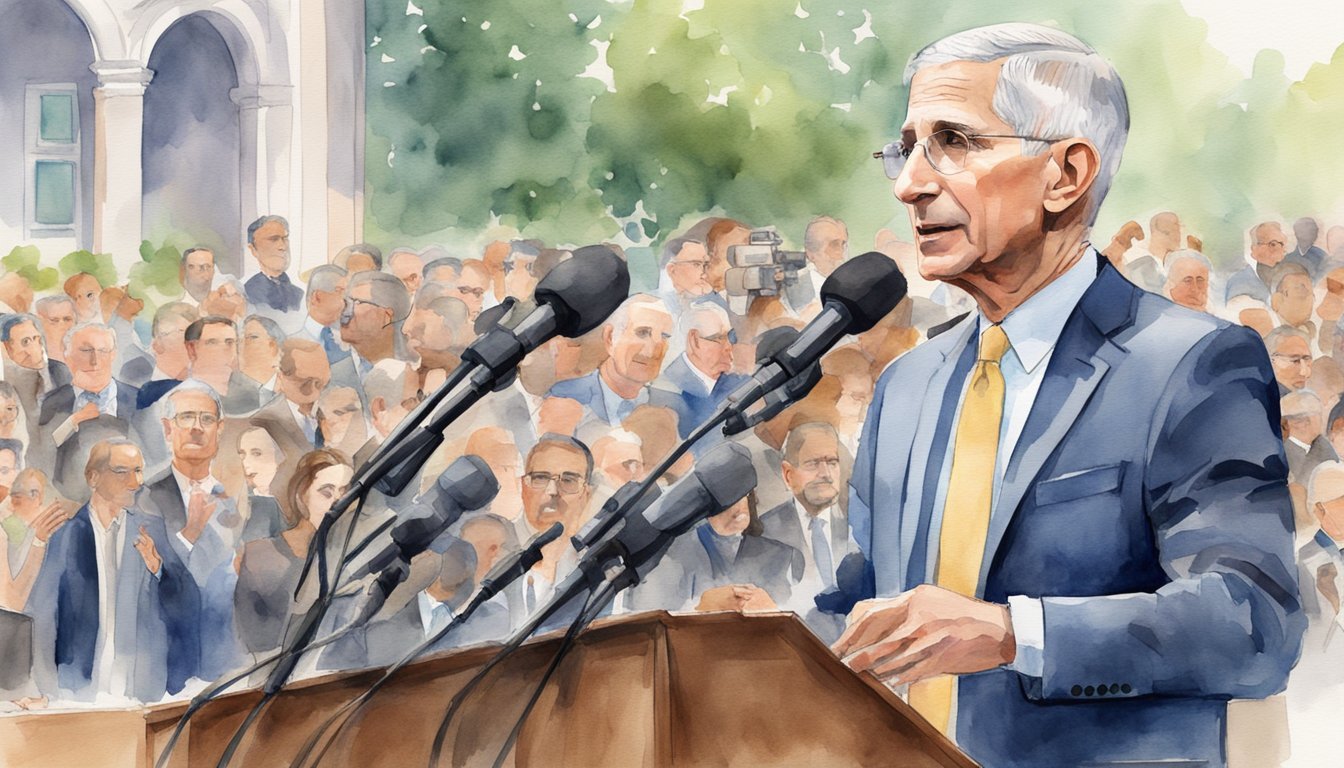Overview of Anthony Fauci’s Role

Dr. Anthony Fauci has played a significant role in shaping the response to infectious diseases in the United States over the past several decades. His work has had a substantial influence on public health policy, particularly during crises such as the COVID-19 pandemic.
Career in Public Health
Since becoming the director of the National Institute of Allergy and Infectious Diseases (NIAID) in 1984, Dr. Fauci has overseen an extensive research portfolio focused on infectious and immune-mediated diseases. His career at the National Institutes of Health (NIH) spans several administrations, highlighting his role as a key advisor on a wide range of health issues. He has made contributions to HIV/AIDS research and other immunodeficiency diseases, both domestically and globally, helping to shape the scientific approach to treatment and prevention.
Leadership During the Covid-19 Pandemic
During the COVID-19 pandemic, Dr. Fauci emerged as a central figure in the coronavirus response. As the chief medical advisor to President Joe Biden and a member of the White House Coronavirus Task Force, he was one of the most visible public health officials, guiding the nation through evolving science and policy decisions. His frequent media appearances and testimony before Congress were pivotal in communicating public health measures and updates on the pandemic’s status.
Criticism and Controversy
Dr. Anthony Fauci has been a notable figure in the American medical community, particularly during the COVID-19 pandemic. His tenure has not been devoid of controversy, especially in areas like gain-of-function research and public misinformation.
Debate on Gain-of-Function Research
They have levied Criticism at Dr. Fauci regarding his involvement with gain-of-function research, which is a form of study that can potentially increase the transmissibility of pathogens to better understand them. Critics have questioned the nature of the funding provided by the National Institutes of Health (NIH) to the Wuhan Institute of Virology, which is known to carry out such research. The concerns are particularly focused on the possibility of a link between this research and the outbreak of the COVID-19 pandemic. The EcoHealth Alliance, which partnered with the Wuhan Institute, fell under scrutiny after information was released under the Freedom of Information Act.
Senate Hearing Tensions
Tensions have been high during Senate hearings, where Dr. Fauci has engaged in heated exchanges with Senator Rand Paul. The debates centered on the previously mentioned gain-of-function research and the role of NIH in supporting such studies. Accusations of lying were traded, often with these moments being amplified via social media.
Public Response and Misinformation
Dr. Fauci’s statements and guidance have fluctuated with the evolving context of the pandemic, leading to a mixed public response. Some have used clips and statements out of context to create a narrative of deception, resulting in widespread misinformation and false claims about Dr. Fauci’s guidance and intentions. Notably, sites like Gateway Pundit have come under fire for spreading potential misinformation. Misinformation has been especially propagated through social media, complicating the public’s ability to discern the truth.

